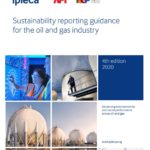When David Wheeler was part of The Body Shop’s senior management team in the 1990s, the company was winning international accolades for the transparency of its reporting, not just on financial performance, but also on environmental and social responsibility issues.
Yet, as Wheeler reflects on where sustainability efforts are todayEarth Dayhe wonders whether the focus should change.
"Good reporting is no substitute for good performance," says Wheeler, now a sustainability and business strategy professor at York University’s Schulich School of Business in Toronto. "What emerged in the 1990s, and what has been further reinforced today, is companies getting on the bandwagon for (sustainability) reporting."
Sustainability reporting includes reporting on the triple bottom line, adding social responsibility and environmental responsibility to the traditional financial-reporting mix. There is no legislation requiring companies to issue sustainability reports or to have them audited.
Wheeler wonders whether during his tenure at The Body Shop, a natural-based cosmetics maker owned by L’Oreal SA of France, he should have spent more time flagging the importance of the triple bottom line with consumers instead of focusing on other reporting.
Last year, 70 per cent of the companies on the S&P/TSX composite disclosed some form of sustainability information, either in a separate report or as part of their annual reports, according to a study by Ottawa-based consultancy Stratos Inc. released last month.
This marked an increase from 2003, when 60 per cent of companies made sustainability disclosures, and 2001, at 35 per cent.
After their counterparts in Japan and the United Kingdom, Canadian companies produce more stand-alone sustainability reports than those in other countries, according to another study conducted last year by public accounting firm KPMG LLP.
Why are companies focusing on sustainability? As Bill Joy, co-founder of Sun Microsystems Inc., said in an oft-quoted line, "Businesses can talk all about this social responsibility stuff, but they are likely to do something about it only if there’s an economic reason for them to do it."
As reports have evolved, they have moved from being a public relations exercise in the early 1990s to being integrated with business processes, according to the Stratos study.
Unlike financial reports, the majority of sustainability reports are not audited by outside parties. Indeed, less than 20 per cent of companies had a third party provide assurance on their reports.
Some 35 per cent of reporting Canadian companies adhere to guidelines set by the Global Research Initiative, a sustainability institution associated with the United Nations Environment Program, the Stratos study showed.
Sustainability reports can be a public relations exercise, says Barry Colbert, senior research fellow at York University’s Institute for Research in Innovation and Sustainability, also in Toronto, "But at least it’s a public record and companies need to live up to that."
In a sustainability report last year, Nike released the names of more than 700 contract factories that manufacture its merchandise. In the past, Nike has been under attack for operating alleged sweatshops, but in the report chairman Philip Knight said the company is planning to improve working conditions. While The Wall Street Journal said Nike’s report did not make any conclusions about the state of working conditions in these factories, what Nike did do was acknowledge areas of concern, including low wages and harassment at factories. The report was lauded as a major step by sustainability observers, including John Elkington, who coined the term triple bottom line. Sustainability reports are a key step for companies to understand where they are and where they’re going, adds Tima Bansal, associate professor of strategy at the University of Western Ontario in London. Reporting helps build a relationship with the community, yet it also puts pressure on companies by establishing benchmarks for which they’ll be accountable.
But Alberta’s Suncor Energy Inc., which has been recognized for its biennial sustainability reports since 1995, wants to be held accountable.
"We’re trying to earn societal consent," says Gordon Lambert, vice-president for sustainable development. "The report is essential for that."
Since 2000, the financial community has been a key stakeholder using the report to evaluate the company’s performance based on triple bottom line results. The community has been pointing particularly to the establishment of the Dow Jones Sustainability Indices in 1999, the global indices that track the performance of sustainability driven companies.
"It started to legitimize the importance of the environmental and social (metrics)."
The sustainability report, which takes Suncor 10 months to produce, allows the company to elaborate on issues, which may be mentioned in the annual report, but with more depth. The report takes about twice the time to produce compared to the annual report, and requires more people because of the breadth of information needed. Suncor produced 60,000 hard copies of the report in 1995, and today that’s down to 10,000 copies. Forwarding users to the Web is part of the company’s sustainability efforts.
Montreal-based Alcan Inc., which has also been lauded for its report, has also pushed users to the Web with its sustainability report. It’s produced about 27,000 copies since it started publishing the report in 2002, but starting this year will offer a more comprehensive version on the Web. The company decided to issue reports in 2002, after it was concluded that all business decisions had to consider the triple bottom line, says spokesperson Alexander Christen. Alcan has a budget of more than $100,000 for producing the sustainability report, and a core-team of seven employees spend about 1,300 hours producing it.
When asked why the company dedicates resources to the report, Christen says, "Our commitment to sustainability was we wanted to be in business 100 years from now."



